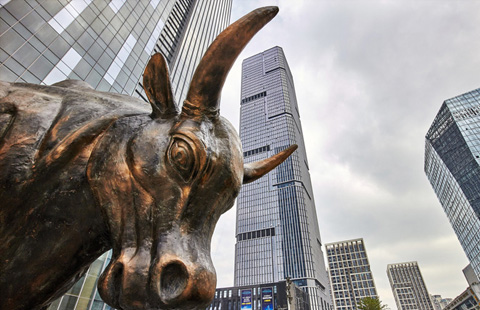Sam's Clubs not the answer for Wal-Mart
By MIKE BASTIN (China Daily) Updated: 2014-12-23 10:17Wal-Mart Stores Inc, ailing in China for many years, plans to open a further seven Sam's Club membership stores across the mainland over the next three years. Management has also said that the company's target is high-in-come families who travel frequently.
This is Wal-Mart's apparent attempt at halting the decline in performance in China, which now contributes a paltry 2 percent of its worldwide revenue.
Wal-Mart has not said what it has learned from numerous mistakes during its 18year presence in the mainland.
The company started with a store in Shanghai. Its "expansion" across China has given it slightly more than 400 stores, out of more than 11,000 around the world.
A key reason for Wal-Mart's underwhelming performance is also the main reason behind much of its global success, which is based on its "every day low prices" strategy. China's burgeoning urban middle class sees this as a symbol of cheap and unsafe produce. The company remains unaware of this and appears committed to targeting middle-class families with this strategy.
That is just one of many examples of Wal-Mart's failure to adapt its business model to the very different Chinese market. This failure has been exacerbated by the rise of local competitors in recent years.
For example, Sun Art Retail Group Ltd has succeeded based on a much better understanding of Chinese customers. Despite a much smaller presence than Wal-Mart, Sun Art has a higher market share.
Sun Art offers a "Chinese street look" at its stores, which resonates with the typical consumer who is accustomed to shopping at local outdoor markets. Sun Art also provides in-store noodle stands. So what about Wal-Mart's latest response to its apparently terminal decline in China? Opening more Sam's Club membership stores, but nothing about adapting to local shoppers.
Incredible, given the very American image of Sam's Club. Any move further away from the local image needed can only contribute to continued decline.
There is often more than a tenuous link between the "Sam" of Sam's Club and the "Sam" of Uncle Sam, a common image of the US government. At a time of bilateral trade tension, any such association could damage Wal-Mart irreparably.
What can Wal-Mart do?
Follow Sun Art in its detailed understanding of Chinese shoppers. Also, a complete image overhaul is needed, where Wal-Mart rebrands itself as a global operator with a local operation in China.
To accomplish this, it is probably necessary for Wal-Mart to form a co-branding alliance with a local competitor.
The author is a visiting professor at the University of International Business and Economics in Beijing and a senior lecturer on marketing at Southampton Solent University's School of Business. The views do not necessarily reflect those of China Daily.
- Hand-made submarine to carry venturers
- Oil giants have the cash and the clout to develop shale resources
- Tables turn against punters in Macao casino shares
- Chinese farmers' amazing inventions in 2014
- Top 10 economic events in 2014
- Xiaomi raises $1 billion in fresh funding
- Greenland to remake Seoul skyline
- Overseas property ventures expected to enjoy robust growth
















